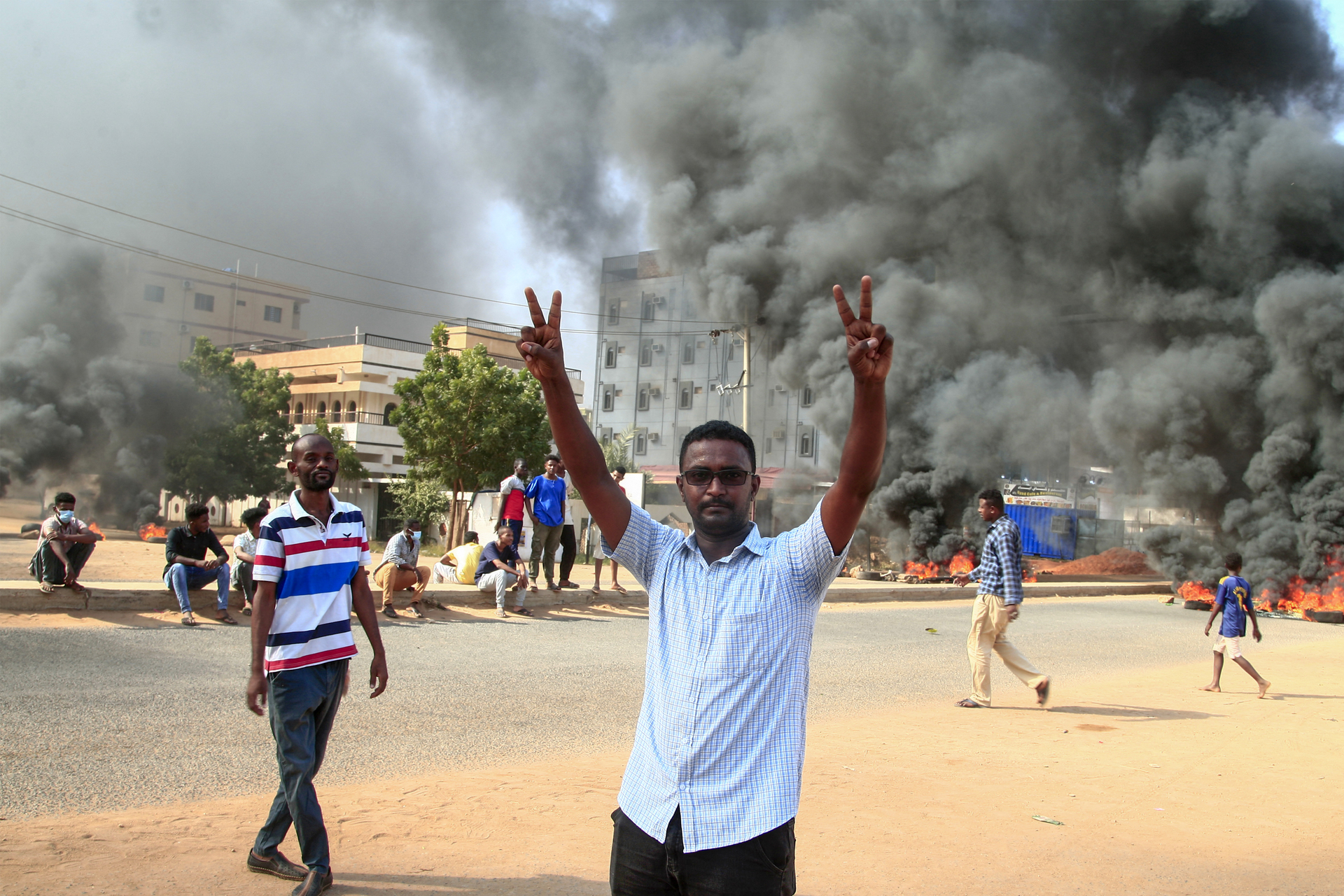On the morning of Monday, October 25, reports began to arrive from Sudan that an attempted coup d'etat had been made in the republic.
Shortly before that, a meeting between the head of the ruling Sovereign Council Abdel Fattah al-Burhan and Prime Minister Abdullah Hamduk took place in Khartoum.
According to the Ministry of Culture and Information of Sudan, Hamduk was called upon to appeal to citizens with words of support for the coup, but he refused, after which he was detained by the military and taken away in an unknown direction.
At the same time, the head of the Cabinet of Ministers managed to make a statement.
“Hamduk urges Sudanese people to stick to peace and take to the streets to defend the revolution,” the message said.
The main opposition movement, Forces for Freedom and Change, also made a similar appeal.
Al Jazeera TV channel also reported on the detention of the ministers of industry, information, communications, an adviser to the prime minister, the governor of Khartoum province and a member of the transitional Sovereign Council.
In addition, the military organized an assault on the state television and radio building located in the city of Omdurman.
The prime minister's office confirmed that Hamduk and his wife had been kidnapped, and several members of the Sovereign Council and political leaders were detained.
"The military leadership of Sudan bears full responsibility for the life and health of Hamduk and his family, as well as for unilateral criminal, legal and political decisions," RIA Novosti quoted the message.
Sudanese citizens were called on to peacefully express their indignation in order to "bring back the stolen revolution."
As the head of the Sovereign Council of Sudan, Abdel Fattah al-Burhan, said during his address to citizens, a state of emergency is declared in the country.
He also announced the dissolution of the government and the Sovereign Council.
According to him, the events leading up to the military intervention posed a threat to Sudan.
AFP
Various categories of citizens of the country reacted negatively to the coup - associations of pilots, bank workers and doctors have already declared a strike, RIA Novosti reports.
The Central Committee of Doctors of the Republic, in particular, called for a "general civil boycott" under the slogan "no military coup."
At the same time, the organization has already reported about 12 demonstrators who suffered from the shooting, which was opened at protesters against the arrest of the head of government and a number of ministers.
Along with this, it was indicated that the military blocked the capital of Sudan, blocking all entrances to the city, closing bridges and central streets.
Also in Khartoum, mobile communications and the Internet are completely disconnected.
According to Asharq TV channel, Abdel Fattah al-Burhan will soon make an "important" statement on state television.
New crisis in the region?
As the expert of the Institute of the Middle East Sergey Balmasov noted, there are many reasons for the current exacerbation in Sudan.
“A single power that has been holding back for decades, and when an authoritarian leader is eliminated, an active period of struggle begins.
We must not forget about the history that Sudan is an artificially created state created on the collapse of the colonial empire, and it includes many different national groups, both Arab and Negroid, and each of the groups has its own goals and desires to isolate itself, to receive income from oil and gold on one's own.
Another point, you need to take into account numerous external factors, "he said in an interview with RT.
The expert also believes that the current crisis will be a harbinger of deeper shocks.
In his opinion, the tense situation in Tunisia, Lebanon and a number of Arab states may be the first echoes of a new crisis.
“Here and the pan-African specifics must be borne in mind, we all know very well what the last modern history was in Sudan, the events in Darfur, the movement of Negroid groups against the Arab government.
This is one of these countries, which is likely to be further divided into separate state additional formations, the secession of South Sudan is far from the limit, ”he added.
In turn, Boris Dolgov, a leading researcher at the Center for Arab and Islamic Studies at the Institute of Oriental Studies of the Russian Academy of Sciences, pointed out that the arrest of high-ranking officials in Sudan and a possible coup d'etat is an important enough event for the entire region.
“It is too early to talk about the consequences, there is still no exact information on how the forces that seized the representatives of the authorities have support among the population, the armed forces, and law enforcement forces.
It is possible that behind them are external actors with their own interests.
What happened is a reflection of an internal political struggle and, possibly, a confrontation of external actors.
Perhaps there are some actions of Islamist groups or those forces that are trying to return Sudan to the political path that was followed by the previous president, Omar al-Bashir, ”said the interlocutor of RT.

